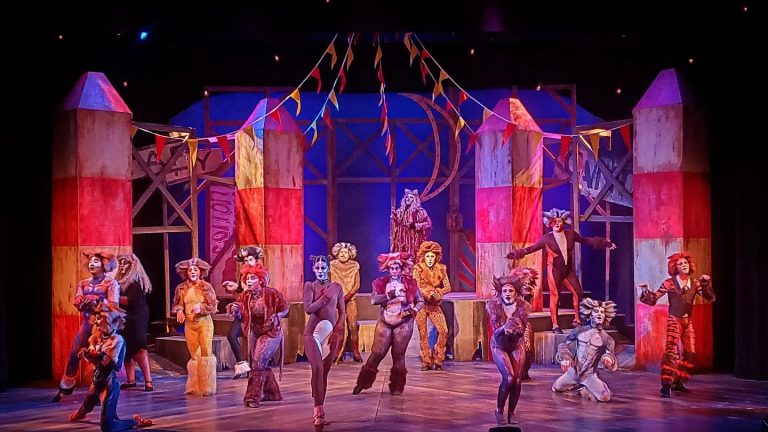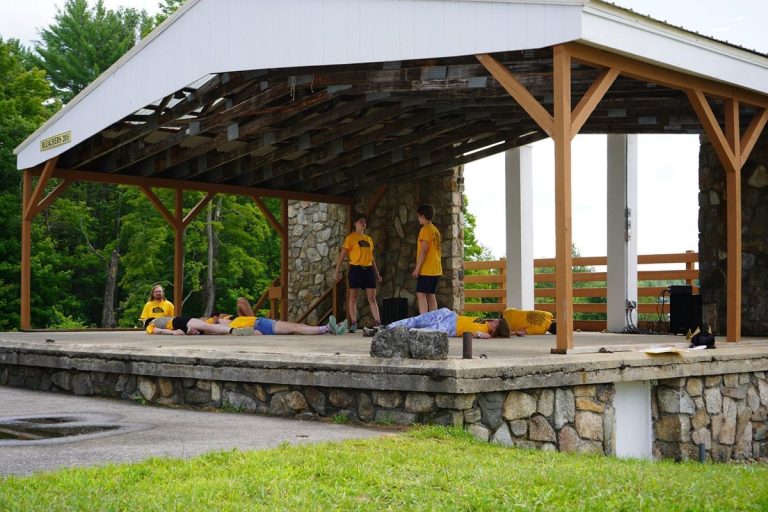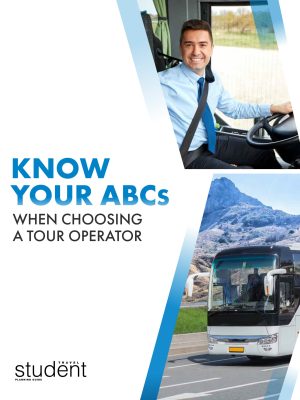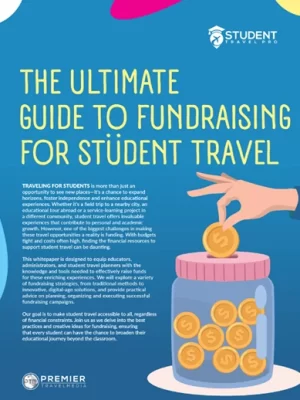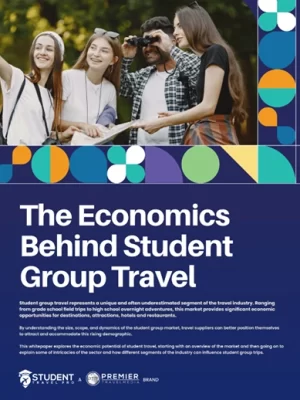Performing arts curricula are vital for students’ social and academic development, and their return in a post-pandemic world is essential
By Michael Th. Embrey
The future of the “Entertainment Arts” school programs (music, theater and dance) has had some major challenges in the past 24 months. Remote learning may be applicable to some academic programs, but group ensembles like the band, choir, orchestra, dance, and theater need the interaction of in-person experiences. In an effort to trim budgets and improve academic performance, some music education programs are disappearing as a result of state/local officials cutting the “arts entertainment” programs from schools.
Schools and directors must have newly heightened awareness that has come from the problems of the pandemic. Schools and directors must redouble their advocacy efforts due to the problems of the pandemic. Music opportunities aren’t extra. Music opportunities aren’t add-ons. Music opportunities aren’t discretionary. Music opportunities aren’t disposable. “Entertainment Arts” involvement is a core value of real-life education. It’s fundamental. It’s necessary. It is an irreplaceable component of holistic and meaningful learning. It develops a work ethic admired by many.
Thankfully, some districts are proponents of music education and claim that student participation in music activities has a positive effect on everything from academic achievement to self-discipline. These sources find that music participants are elected to class offices, receive academic honors and achieve higher grades than do non-music participating students. Some educators believe that music isn’t as important as the core academic subjects. However, research has shown that the benefits of music education include and enhance students’ academic success.
According to Maughan Flaeishfresser, the [school music program] “is an alternate universe where students are often unrecognizable from who they are outside of it. The shy become confident. The agitated become calm. The lonely become included. The quiet become heard. And the lost become found. Music reveals the real [person].” The timid become stars. Music is a life experience and not limited to age or career.
There has been additional interest in student travel for the “Entertainment Arts” in the last couple of months. Many school programs are venturing to closer locations that are more affordable, including theme park festivals and related entertainment opportunities. Some music performance groups are seeking shorter travel times and dates to control the exposure as well as to limit the cost of the experience. Covid concerns continue to plague various locations around the United States. Certain states are more strict on various requirements (masks and vaccinations), while other destinations are completely open. Another variable is school districts and parent organizations that either challenge regulations or will not allow the students to be involved.

Marching band at the Victoria Day Parade, Victoria, Vancouver Island, British Columbia
Some southern states (Texas, Florida, Louisiana, Alabama, Tennessee) are more open and receptive to group travel. With that said, there are always exceptions to all programs and projects. This year, New Orleans required all parade members attending Mardi Gras to be vaccinated (or provide daily negative test proof). Other states that have been attractions for student travel continue to push to stay open with fewer restrictions. Missouri, Colorado, Ohio and Pennsylvania have traditionally been student destinations with great attractions and performance opportunities. Major cities like New York City and Chicago are entangled in political problems with Covid regulations.
International travel and cruises for most student groups are being pushed off until 2023 and 2024. These will continue to be questionable destinations until the international Covid problems are under control.
Creative music directors welcome the challenge of making music education fun. As a former university band director, it was just as important to provide fun experiences as to have quality performances at select events. When I first started teaching, the university sports programs were not very successful, and I had to become more creative in getting performance activities to keep the students in the program. In ten years my university band had traveled from Illinois to California (twice), Florida, Texas (twice), Michigan and Canada with performance opportunities. The band played for several NFL halftimes and the Canadian Football Championship. They did both regional/national parades growing the band to 260 members, with a majority of non-music majors. The band became their family.
With traditional trips, tours and competitions being canceled or postponed, it is refreshing to see how some music educators have created unique opportunities to get their groups exposed to audiences. Local competitions (marching, jazz, show choirs, etc) have given the music groups a chance to be showcased. Other directors are reaching out to community festivals and special events to see if there are opportunities to play. Some schools have created “flash-mobs” programs that are both fun and creative. Some directors are checking with CVBs (convention and visitors bureaus) and state tourism groups to find places to perform.
“Music activities are a vital part of human existence” comments Professor Janet Watson Phillips, Director of Bands at Averett University. “Students need emotional outlets and constructive ways to express themselves. Students also learn a great deal about life while participating in music ensembles and activities, including personal responsibility, patience, teamwork, perseverance and resilience, among many other qualities.”
Phillips again, “As a music educator, I believe it is extremely important to expose our students to live and experience exceptional music performances, as well as to provide them opportunities to make music themselves. Music gives us the tools to express ourselves and to understand one another on a deep level, and provides us another way of “knowing” things, even without words being spoken.
Music and band competitions can be good motivators for students as long as they are healthy and constructive and the focus is on improving themselves each time. I think that travel is a big draw for band students, both in recruitment and motivation. As a music student in high school, I traveled to Canada, New York City and Disney World with my band, among other places and states for competitions and activities. Those band trips strengthened the bonds of our “band family” friendships and exposed us to new places (another country, Broadway shows, different cultures). Students in music have complex emotions and feelings that cannot always be expressed in words.”

Del Norte High School Nighthawks Marching Band, 4th July Independence Day Parade at Rancho Bernardo, San Diego, California, USA. Young student parading with flags and playing music
Being Creative
A JHS Music Director from Colorado Springs (CO) saw a declining interest by music students primarily from a lack of being showcased as an ensemble. Practice only was not an option. This director created an additional performance group based on the current music student having a ‘B’ grade average. He created a “Tub Drum Line” using five-gallon plastic tubs and plastic trash cans. A band Dad built racks and the group was created. The only cost was the price of drum sticks. The group started getting performance invitations for local events and activities. The regular band started growing because of this unique performance option. A private flute teacher based in northern Illinois saw interest waning as her students had no performance opportunity. She created a flute ensemble utilizing seven different size flutes. It was exciting for the traditional flautist to see and experience the various sizes from piccolo to bass flute. The ensemble started booking concerts and entertainment and the group have grown.
“It’s amazing what kids will do for you. I told my brass kids starting next week the Brass Tauquache Practice Club starts. Free shirts and memberships for this club. You would not believe how many kids wanted to stay and practice. Let’s see if they actually do it! I think they will respond.” Aaron Don McMichael, Music Director (Texas).
With the lack of performance opportunities due to COVID, many school music students are dropping out of the program and seeking other activities. The growth of non-school groups has seen a spike in activities and memberships. Travel sports teams have seen an uptick in both membership and competition opportunities. These types of activities grew because they were outdoor and many did not follow all the pandemic rules of masks and vaccines. Students quest for ‘being involved’ type activities and organizations.
In a recent book publication of “Range,” author David Epstein talks of young people being involved in sports-type competitions as both group activity and travel opportunity. These are non-school programs that specialize in one sport. Epstein feels that too often parents push students into one type of activity and should really explore a variety of activity opportunities. Another issue was that these sports travel programs are run by organizations that are interested in competition and not the personal growth and maturity of the member. Also, these amateur sports programs have higher sports injuries for the untrained youth market. It is important to know that sports activities for a majority of students are not a career.
The “Future of Student Travel” will regrow with different options. While the future feels a lot more uncertain than it did eight, 12 or 24 months ago, one thing is certain: eventually, travel and performance activities will return. When it does, music groups, students and parents will be better for it. It can be the only relief for a child that thrives on competition. After a long and mentally stressful day of regular academics, music allows the student a chance to relax and reopen their mind, thus becoming more receptive to other academic activities.

Male And Female Students Singing In Choir With Teacher At Performing Arts School
Parent Q&A: Sabrina Christy, FL
Q: How does music affect grades and academic performance?
A: My son has been involved with music lessons and activities since he was in 3rd grade and is now a senior in high school. He really has a love of music that is very diverse. It has lent itself to a natural curiosity and learner-driven desire to learn about different cultures and their music. He has definitely taught me a thing or two.
He also has learned discipline, work ethic, and time management that benefit him in the classroom. He was a section leader this year as well as band captain. He has learned how to be a leader. His band director even nominated him for a prestigious scholarship program in our region not only for his musicianship, but also for the leadership skills he has developed over the years.
Q: Does the activity create a special camaraderie ….short and/or long term?
A: Absolutely. We moved from Michigan to Florida a week before Kyle started his freshman year of high school. The new school was four times the size of his previous high school. We knew NO ONE in the area. The band director met us in the guidance counselors office and was so helpful. Kyle had a birthday on the second night of marching band rehearsal and the director had the whole band sing “Happy Birthday” to him-he was hooked. The first friends that he made at school were members of the band. I really feel that being part of the band was a crucial piece of him having a good high school experience.
As a parent and band booster volunteer, I also have experienced comradery with other parents…..especially when we are hauling front ensemble equipment all over the place at competitions (lol).
Q: What effects does competition and special performance have on your student?
A: I know for Kyle, that he loves going to special performances. He had the opportunity to recently participate in an honors band at the University of South Florida. He had an amazing time. He said that it was the best performance that he has ever been a part of. His exposure to other top student musicians was motivating.
Kyle has a new band director for marching season this past year. This new director had the vision to take the band program to the next level. They went to several new competitions this year where the bands they were competing against were incredible. It was fun to watch the kids get excited and “see” the vision of where their band director would like to take them.
Kyle also got the opportunity to go on a trip with the band to Washington, D.C. (pre-covid). It was a great time for him to mature as he was traveling without his parents. For a lot of kids in the band program, this may be the first time that they had ever traveled out of state.
Band and the activity itself have made my son a better person, and yes a better student.
10 Benefits of Music Education
In an article written by Lauren Martin, Ms. Martin feels there are 10 benefits of music education that highlight why it should be an integral part of students’ lives—whether inside or outside of school.
- Language skills. Learning a musical instrument also improves how the brain understands human language, which can help students learn a second language.
- Improved test scores. Studies have shown that students who are involved with a high-quality music education program in school perform better on tests than students who don’t engage in music.
- Self-esteem. Music allows students to try something new and develop confidence as they master singing or playing an instrument.
- Listening skills. Music involves listening to yourself and to the rest of the ensemble.
- Math skills. Reading music includes learning quarter, half, and whole notes which are essentially fractions.
- Making the brain work harder. Research shows that the brain of a musician works differently than a non-musician, according to Dr. Eric Rasmussen, chair of the Early Childhood Music Department at the Peabody Preparatory of The Johns Hopkins University.
- Relieving stress. We all know that listening to a favorite artist or song can lift a mood and relax us. The same goes for creating music.
- Creativity. Music certainly nurtures kids’ creative side.
- Helping special needs children. It helps them find a way to communicate and open up, which they may struggle with otherwise. NOTE: There are three ‘special needs’ music ensembles in the U.S. (New York, Illinois, California).
- Higher graduation rates. Schools with music programs have higher graduation rates.
For some educators, “Entertainment Art” is also “Entertainment Art Sport.” Many people do not think of music as a sport, but the physical requirements are just as challenging. Marching bands, Show Choirs and theater/dance groups must maintain a healthy exercise regime in order to execute an assigned performance requirement. A competitive marching band or drum & bugle corps spends hours and thousands of steps to perfect one show.




